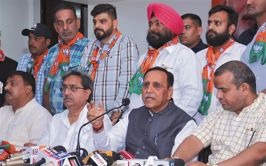IN the course of his speech in opening the autumn campaign of the Independent Liberal party, Mr Asquith attacked the proposals for the development of imperial preference and emphasised the necessity of defending free trade, which had been given a setback at home and abroad in past years. Mr Asquith was both right and wrong. He was undoubtedly right when he deprecated the proposals for imperial preference which are a doubtful boon in some cases and an unmitigated evil in others, as in our own case, for instance. But he was equally wrong in his general advocacy of free trade. Free trade is good enough for a country like England, which has built up its industries on the basis of protection, and whose peculiar position makes a general policy of free trade far more beneficial to it than a general policy of protection. But the British Empire contains countries as far removed from one another economically as one set of countries can be from another, and it is absurd to say that one general system can suit all those nations. As a matter of fact, none of England’s colonies has accepted the policy of free trade, while one half of her own people are decidedly in favour of some form and measure of protection. As for our own country, where opinion has always been preponderantly protectionist, free trade is under a sentence of death which will be executed the moment the people come into their own, perhaps even earlier. Men of Mr Asquith’s way of thinking do wrong in seemingly imagining that imperial preference and free trade between them exhaust all the possibilities of the case.
Join Whatsapp Channel of The Tribune for latest updates.



























